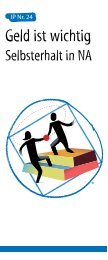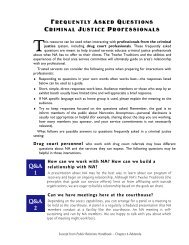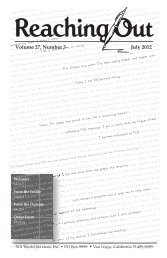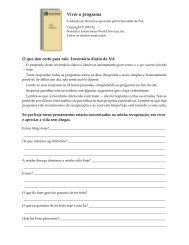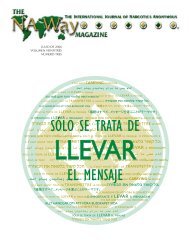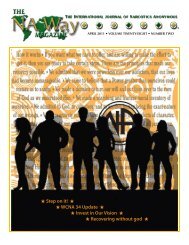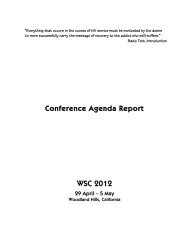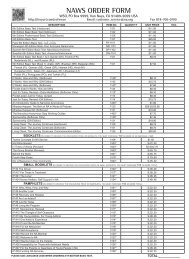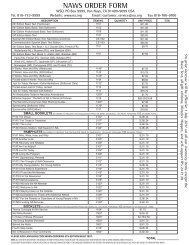Public Relations Handbook - Narcotics Anonymous
Public Relations Handbook - Narcotics Anonymous
Public Relations Handbook - Narcotics Anonymous
Create successful ePaper yourself
Turn your PDF publications into a flip-book with our unique Google optimized e-Paper software.
Volunteers can be trained to use NA literature to present an accurate andpositive message of recovery as well as to clarify that the NA program isseparate from treatment centers or other twelve-step programs. Clean-time requirements should be established. Areas that lack human resourcesmay need to be flexible with clean-time requirements. A strong training programwill help phoneline volunteers who may not have the desired clean time. Phoneline volunteers need to be instructed to make no commitments on behalf ofthe area, region, or NA fellowship. If a professional or member of the publiccontacts an NA phoneline, volunteers should be trained to provide as muchinformation about NA as they can, solicit information from the public contact, andfollow up with the appropriate trusted servant such as a committee chairperson orthe area’s media contact person. The committee needs to train phoneline volunteers on how to handle difficultcalls, such as calls from addicts who are under the influence of drugs, prankcalls, and calls from those who suffer from mental illness. One strategy is tocontinually bring the conversation back to how the caller can get to an NAmeeting and end a problem call before the situation escalates.“…we also know that firstimpressions count andthat the principle ofattraction is important toan addict’s ability to hearthe NA message.” The committee can be prepared toquickly respond to a variety of phonelinecalls made by the public, including simplerequests for information or calls madeabout problems created by the behaviorof NA members. If phoneline volunteers receive a callfrom a person in crisis, they should bevery clear about where theirresponsibility ends. Phoneline volunteersare not counselors or crisis workers. Threats to commit suicide, a drugoverdose, or talk about being a victim of violence are all examples of crisis calls.Refusing to refer such callers to qualified outside crisis agencies could have legalimplications, depending on local laws. An area may want to research local laws tofind out about individual legal responsibility. See the referral section below formore information about referring callers to outside organizations.The purpose of our services is to help the fellowship fulfill itsprimary purpose: to carry the message to the addict who stillsuffers. Honest, open, straightforward communication isessential to both the integrity and effectiveness of the NA servicestructure.Twelve Concepts for NA ServiceD i s c u s s i n g a n d a d d r e s s i n g k n o w n c h a l l e n g e si n p h o n e l i n e s s e r v i c eMeeting recommendationsNA is frequently contacted by potential members and professionals looking formeetings they believe will allow for identification. Many volunteers have been facedwith the question: Do you know a meeting that would help this person? We knowthat our traditions encourage a spirit of anonymity, and that anonymity allows us tomeet equally as addicts. Yet, we also know that first impressions count and that the84 | Chapter 9 | Phonelines




